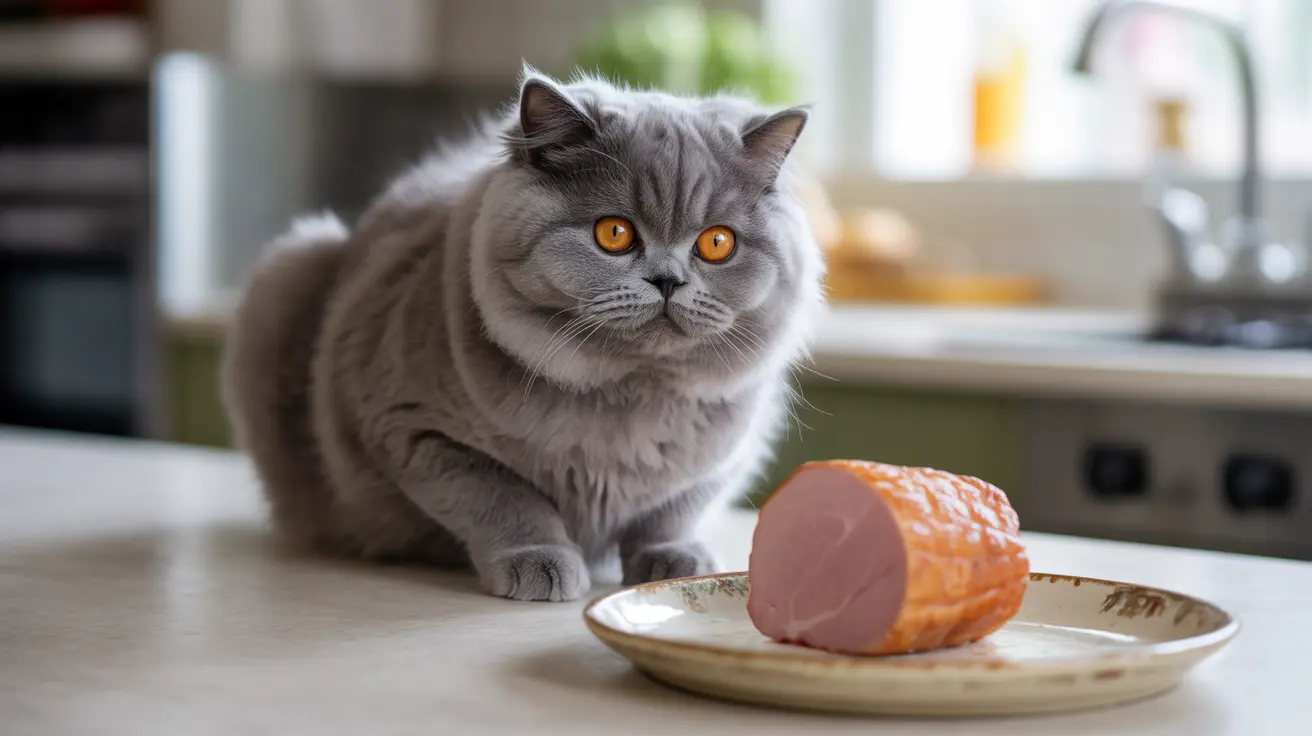Many cat owners wonder about sharing ham with their feline companions, especially when those pleading eyes appear during mealtime. While cats are naturally drawn to the appetizing aroma of ham, it's crucial to understand both the potential benefits and risks before offering this meat to your pet.
In this comprehensive guide, we'll explore everything you need to know about feeding ham to cats, including safety considerations, proper serving sizes, and important health warnings that every pet parent should know.
Understanding Ham's Impact on Feline Health
Ham is a meat product that cats find irresistible, but its nutritional profile presents several concerns. While cats are obligate carnivores who require animal protein, ham's high sodium and fat content can pose significant health risks.
The processing methods used for most commercial hams introduce additional complications, including preservatives, nitrates, and seasonings that could be harmful to your cat.
Potential Risks of Feeding Ham to Cats
Sodium Content Concerns
The high salt content in ham can lead to serious health issues in cats, including:
- Dehydration
- High blood pressure
- Kidney strain
- Electrolyte imbalances
Fat-Related Health Issues
Excessive fat in ham may cause:
- Pancreatitis
- Obesity
- Digestive upset
- Long-term cardiovascular problems
Safe Feeding Guidelines
If you decide to offer ham to your cat, follow these essential guidelines:
Proper Portions
- Limit portions to small, bite-sized pieces (no larger than 1 inch)
- Offer ham no more than 2-3 times per week
- Remove visible fat and skin
- Choose plain, unseasoned ham only
Preparation Methods
- Use fully cooked ham only
- Avoid processed deli meats
- Never feed ham with bones
- Skip seasonings and glazes
When to Avoid Feeding Ham
Some cats should never be given ham, including:
- Kittens under 12 months
- Seniors with health conditions
- Cats with kidney or heart disease
- Overweight or obese cats
- Cats with diagnosed sodium sensitivity
Healthier Alternatives to Ham
Instead of ham, consider these safer protein options for your cat:
- Plain cooked chicken
- Fresh turkey
- Commercial cat treats
- Specially formulated feline protein snacks
Frequently Asked Questions
Is it safe for cats to eat ham, and what are the potential health risks?
While cats can eat ham in small amounts, it's not entirely safe due to its high sodium and fat content. The main health risks include dehydration, high blood pressure, pancreatitis, and digestive issues. Processed ham may also contain harmful preservatives and seasonings.
How should I prepare ham to make it safe for my cat as an occasional treat?
Choose plain, unseasoned, fully cooked ham. Remove all visible fat and cut it into small, bite-sized pieces. Avoid processed deli ham or ham with glazes, seasonings, or marinades. Serve in very small portions only occasionally.
Why is processed ham generally considered bad for cats compared to home-cooked ham?
Processed ham contains additional preservatives, nitrates, and often higher sodium levels than home-cooked ham. It may also include artificial additives and seasonings like garlic or onion powder, which are toxic to cats.
Can kittens safely eat ham, and if so, what quantities are recommended?
It's best to avoid giving ham to kittens entirely. Their developing digestive systems are more sensitive to rich, salty foods. If you must offer ham to a kitten, limit it to tiny amounts (smaller than a pea) very occasionally.
What are healthier alternatives to ham for cats looking for a protein-rich treat?
Better alternatives include plain cooked chicken, turkey, or commercially prepared cat treats. These options provide protein without the excess sodium and fat found in ham. Always choose treats specifically formulated for cats when possible.
Conclusion
While cats can technically eat ham, it's best treated as an occasional indulgence rather than a regular treat. The high sodium and fat content, along with potential additives in processed ham, make it a risky choice for feline consumption. Always prioritize your cat's health by offering safer, more appropriate treats, and consult with your veterinarian before introducing any new foods to your cat's diet.






